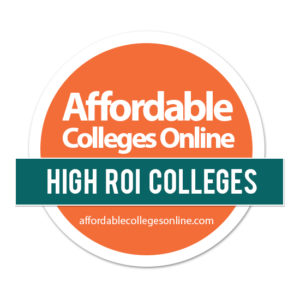
Clark University has been ranked a top college in Massachusetts for return on investment.
AffordableCollegesOnline.org (AC Online) recently launched a new ranking: “AC Online: Highest Return on Investment Colleges in Massachusetts,” which identifies the 51 colleges in Massachusetts where degrees pay off the most. Graduates from these schools enjoy the largest earnings gap between non-degree holders over thirty years, and earn more on average than graduates from other Massachusetts schools. Clark University is listed at #23.
View the complete AC Online: Highest Return on Investment Colleges in Massachusetts ranking.
Clark University’s “Return on Education” website offers information on employers, career paths, graduate schools, rankings, salary potential and internships. Alumni career paths, including graduate alumni, are searchable by industry and by major. The site includes videos and interviews with Clark alumni such as cooking author/activist Mark Bittman, president of Hitachi Corporation Barbara Dyer, and grads working in law, health, NGOs, filmmaking, and many other fields.
An infographic at the site reveals Clark’s comparative data relating to the Higher Education Data Sharing Consortium (HEDS) Alumni Survey.
“These are important lists for prospective students to consider,” says AC Online founder Dan Schuessler. “We’ve sifted through comprehensive data sources to find colleges and universities in Massachusetts that offer a high quality education with consistent, long-term payoffs in the workplace.”
AC Online developed the following criteria for consideration as a “High ROI College”:
- Fully accredited institution
- Either public or private
- Four-year, degree-granting institution
- ROI according to PayScale’s 2013 College Value Report
AC Online compiled a list of schools meeting these criteria by using the following highly respected, authoritative data sets:
- NCES, the primary federal entity for collecting and analyzing data related to education. It provides consistent, reliable, complete, and accurate indicators of education status and trends.
- IPEDS, the primary federal source for data on colleges, universities, and technical and vocational postsecondary schools in the U.S.
- Carnegie Classification, a framework widely used in the study of higher education, both as a way to represent and control for institutional differences, and also in the design of research studies to ensure adequate representation of sampled institutions, students, or faculty.
- Payscale.com, the premier salary data collection organization.
“We aim to educate so that potential students are aware of their options for obtaining a degree and, most importantly, for paying for one,” says Schuessler. “What are the most fordable options – online study, two-year, four-year, public or private colleges? What financial aid options are available and what pitfalls should you avoid? Our goal at AffordableCollegesOnline is to keep our finger on the pulse of college-related issues, the latest research, how the government is responding, and help students analyze their options.”
Affordable Colleges Online provides students with information about affordable higher education options. The website offers financial aid videos, expert advice, and cost savings ideas. AC Online is a trusted resource for college stats and rankings. Most recently the site launched a feature that provides students with a categorized directory of free online introductory, or “101,” classes from several top named U.S. universities such as MIT, Michigan and U.C. Berkeley.
Founded in 1887 in Worcester, Massachusetts, Clark University is a small, liberal arts-based research university addressing social and human imperatives on a global scale. Nationally renowned as a college that changes lives, Clark is emerging as a transformative force in higher education today. LEEP (Liberal Education and Effective Practice) is Clark’s pioneering model of education that combines a robust liberal arts curriculum with life-changing world and workplace experiences. Clark’s faculty and students work across boundaries to develop solutions to complex challenges in the natural sciences, psychology, geography, management, urban education, Holocaust and genocide studies, environmental studies, and international development and social change. The Clark educational experience embodies the University’s motto: Challenge convention. Change our world.
